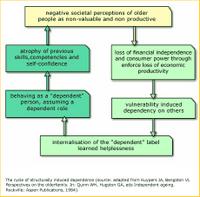
An interesting report on age discrimination emerged over last few days. The report entitled - Tackling age discrimination Oct_2005 was produced by the Chartered Management Institute (CMI) and the Chartered Institute of Personnel and Development (CIPD) and looks at managers and personnel professionals (across the UK) responses to issues that relate to age discrimination and career expectations.
The main findings from the report are quite worrying and include:
Six in ten respondents (59 per cent) reported that they have been personally disadvantaged at work because of their age
Nearly a quarter of those surveyed (22 per cent) admitted that age has an impact on their own recruitment decisions
Almost half (48 per cent) of those surveyed had suffered age discrimination through job applications
39 per cent believe their chances of promotion have been hindered by age discrimination, i.e over half (63 per cent) of respondents believed that workers between the ages of 30-39 years old had the best promotion prospects, with only 2 per cent citing 50 year-olds or above
A majority, (80 per cent) reported that they are hanging on to the expectation that they will personally retire by the age of 65, despite believing that the age of retirement for the average person in ten years' time will be 66 or older
The main findings from the report are quite worrying and include:
Six in ten respondents (59 per cent) reported that they have been personally disadvantaged at work because of their age
Nearly a quarter of those surveyed (22 per cent) admitted that age has an impact on their own recruitment decisions
Almost half (48 per cent) of those surveyed had suffered age discrimination through job applications
39 per cent believe their chances of promotion have been hindered by age discrimination, i.e over half (63 per cent) of respondents believed that workers between the ages of 30-39 years old had the best promotion prospects, with only 2 per cent citing 50 year-olds or above
A majority, (80 per cent) reported that they are hanging on to the expectation that they will personally retire by the age of 65, despite believing that the age of retirement for the average person in ten years' time will be 66 or older
Some worrying statistics there - for both management-level workers and the organizations that employ them. However, it is strange to see that the very people who are main victims of ageism are also the main perpetrators. In other words, what forces are at work when a manager discriminates on the basis of age when he or she may have been or expect to be the victim of discrimination themselves? Could one of them be commercial forces?
A summary of these findings (and more key points) can be found here.
1 comment:
One should not be discriminated against because of race, age, religion etc. With age comes experience, nuh? What are the human rights groups doing about this?
Post a Comment